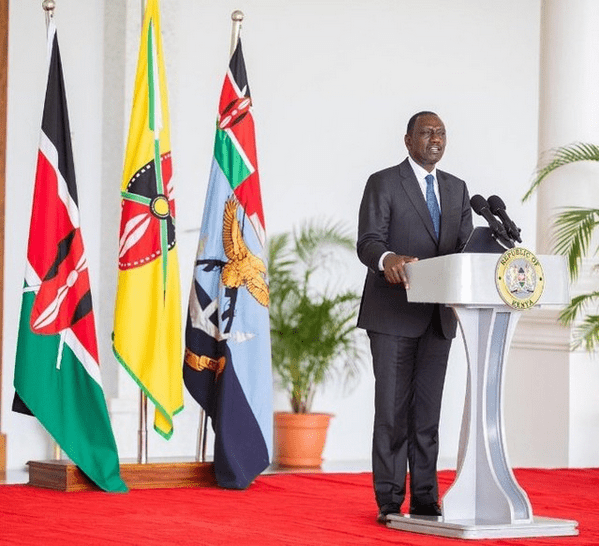Kenyan President William Ruto has made a significant political move by appointing members from the country’s largest opposition party to his government, describing it as a “national unity government.” This decision comes in the wake of violent anti-tax protests, raising questions about the implications for Kenya’s political landscape.
In a press briefing held at his Nairobi residence, President Ruto announced the appointments of key figures from the Orange Democratic Movement (ODM), a party known for its opposition stance. John Mbadi was named the finance minister, while Hassan Joho was appointed as the cabinet secretary for mining, blue economy, and maritime affairs.
Wycliffe Oparanya took the role of cabinet secretary for cooperatives, and Opiyo Wandayi was assigned to oversee the energy portfolio. These appointments are part of a broader reshuffle, with a total of ten new nominations, including retaining six members from the previous cabinet.
President Ruto praised these appointments as a “historic gesture of their patriotism,” noting their willingness to prioritize national interests over partisan positions.
“Their willingness to set aside partisan positions and interests in order to join a visionary partnership for the radical transformation of Kenya is a historic gesture of their patriotism,” Ruto said.
He further acknowledged the significant expectations placed upon his administration by the Kenyan people.
“I know and I understand acutely the huge expectations of the people of Kenya on me and this administration,” he added.
However, the move has not been without controversy. Anti-government activists and some opposition leaders have criticized the appointments, arguing that they undermine the integrity of the opposition’s stance.
The protests that preceded these appointments, aimed at opposing a finance bill intended to raise $2.7 billion in taxes, resulted in at least 50 deaths, according to the Kenya National Commission on Human Rights.
Prominent activist Boniface Mwangi, known as ‘the people’s watchman,’ voiced strong disapproval of the ODM leaders’ decision to join the government.
“He has betrayed the people and formed a government of national looting with Zakayo,” Mwangi wrote on X (formerly Twitter), using a nickname for Ruto that references a biblical tax collector.
Raila Odinga, the ODM leader and a vocal critic of Ruto’s administration, has faced backlash for this perceived shift. Odinga, who previously contested Ruto’s 2022 presidential election victory on grounds of alleged vote rigging, has denied allegations of being bribed to join the government.
Earlier, Odinga supported a statement from his party’s secretary-general, which warned that seeking ministerial positions would go against ODM policy.
As the situation develops, the impact of these appointments on Kenya’s political dynamics remains to be seen, particularly in terms of how it will influence public perception and the unity within the opposition ranks. The decisions made in the coming months will be crucial in shaping the country’s path forward.

















